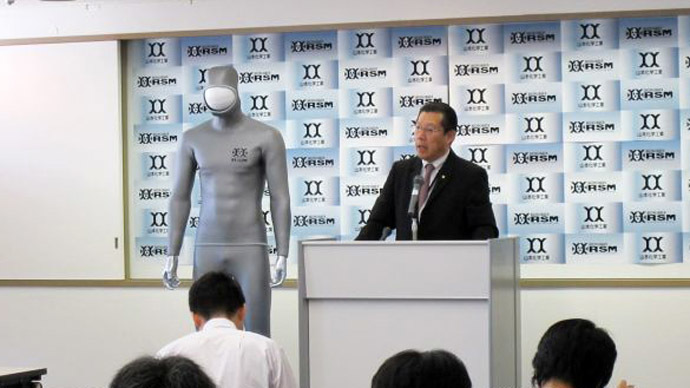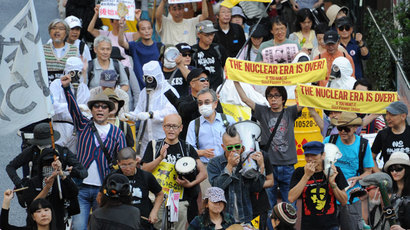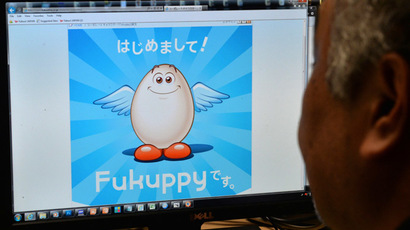Lead-based underwear designed in Japan to help fight Fukushima disaster

A Japanese company has invented carbon wetsuits and lead-based underwear that can protect against radiation amid the growing aftermath of the Fukushima nuclear crisis. It comes as Japan fights to stop the flow of radioactive water leaking into the sea.
Three of the Fukushima plant’s nuclear reactors were damaged by an earthquake-triggered tsunami on March 11, 2011, which led to a nuclear disaster. The plant has been accumulating radioactive water ever since.
Designed in an effort to protect Fukushima clean-up workers, Osaka-based swimwear company Yamamoto Corporation unveiled the anti-radiation garments on Thursday.
The company claims that the wetsuit made from stretchy rubberized kneaded carbon can stop 100 percent of beta radiation.
The swimwear - which weighs only three kilograms - is completely fused so the contaminated water cannot seep through. The suit therefore protects the person wearing it from aftermath illnesses such as cancer, according to its makers.
Yamamoto Corporation is also working on lead-based underwear which protects the lower part of the spine and abdomen from harmful gamma rays. The underwear’s weight is 3.4 kilograms.

“The clothes which protect from two kinds of radiation - beta and gamma rays –as described above are the first development of such kind in the world,” the company said in a statement.
Due to be released in November, the wetsuit will cost just over
US$1,000, while the underwear will cost around $825.
Meanwhile, the UN Scientific Committee on the Effects of Atomic Radiation (UNSCEAR) has suggested in a report that Japan’s government may have underestimated by 20 percent the internal radiation that cleanup workers received after the nuclear disaster occurred . UNSCEAR used data provided by the Japanese government, Tokyo Electric Power Company (TEPCO), and other entities to assess the amount of radioactive substances discharged during the crisis, The Asahi Shimbun reported. It also analyzed radiation doses in around 25,000 people who worked at the plant no later than October 2012.
The UN committee also revealed that the tests conducted had failed to account for some types of radiation, adding that the nuclear plant’s employees were tested after a significant delay.
TEPCO, the plant’s operator responsible for the clean-up, said on Friday that radioactivity levels in a well near a storage tank on the Fukushima premises have immensely risen. The company detected 400,000 becquerels per liter of beta ray-emitting radioactive substances at the site - a level 6,500 times higher than readings taken on Wednesday, NHK World reported. The news comes as TEPCO struggles to cope with the aftermath of the nuclear disaster.














